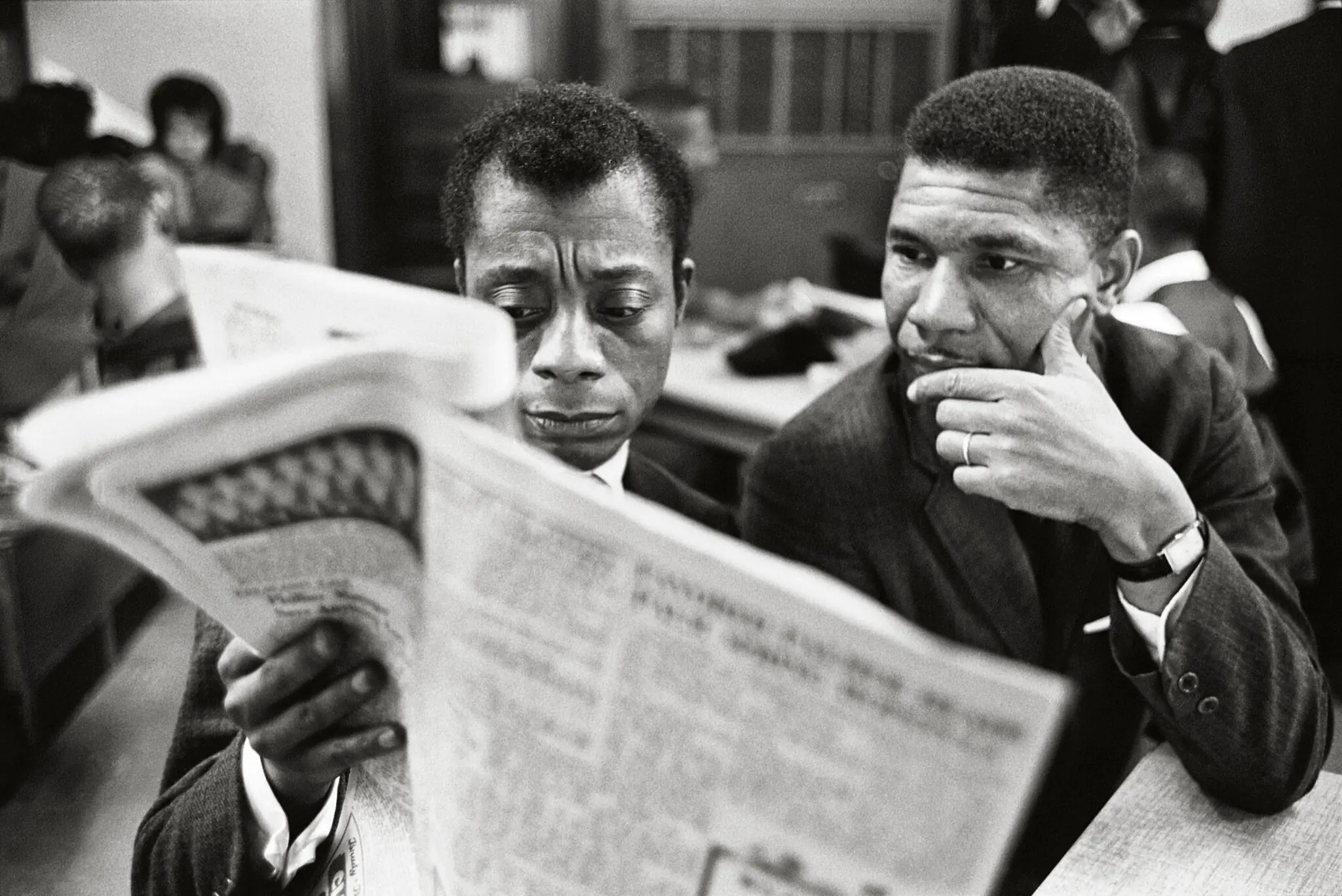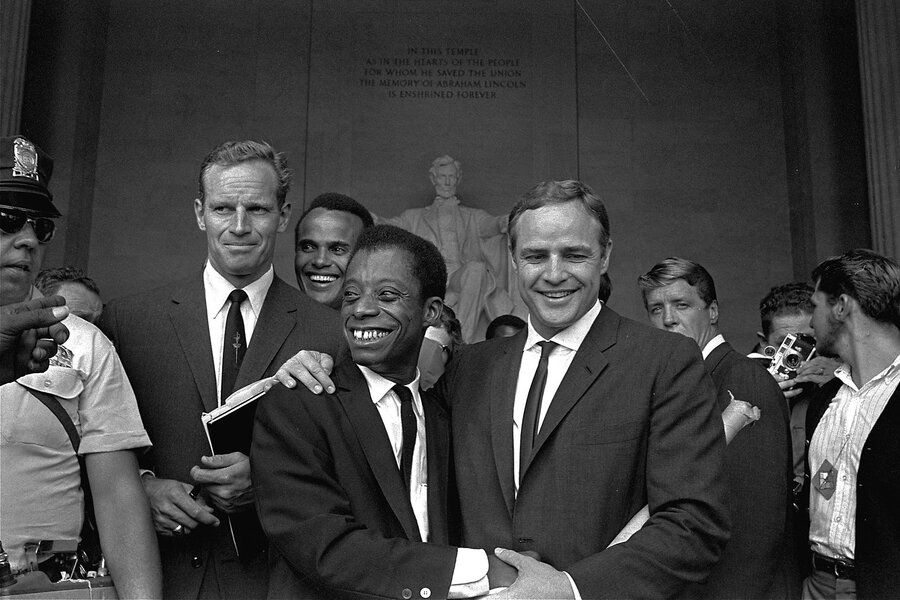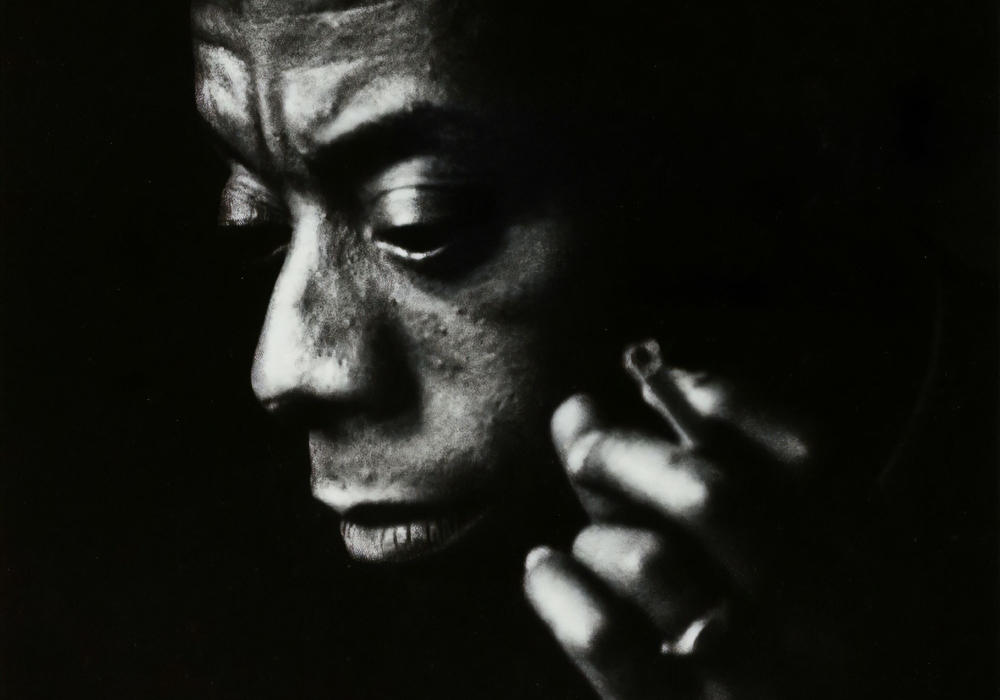James Baldwin's 100th birthday marks a milestone in literary history. His works continue to inspire and challenge readers globally
James Baldwin, born August 2, 1924, remains a towering figure in American literature. Known for his poignant exploration of race, sexuality, and identity, Baldwin's novels, essays, and speeches have left an indelible mark. His seminal works, like "Go Tell It on the Mountain" and "The Fire Next Time," offer deep insights into the African American experience.
Baldwin's writings not only reflect the struggles of his time but also resonate with contemporary issues. Celebrating what would have been his 100th birthday offers a moment to reflect on his enduring legacy. Baldwin's voice remains crucial in ongoing conversations about justice, equality, and human rights.

Early life and background
James Baldwin remains a towering figure in literature and social justice. Celebrating his 100th birthday, we delve into his early life and background. Understanding his childhood and education provides a glimpse into the forces that shaped this influential writer and activist.
Birth and childhood
James Baldwin was born on August 2, 1924, in Harlem, New York City. His mother, Emma Berdis Jones, was a single parent at the time. She married David Baldwin, a strict preacher, who became James' stepfather. Baldwin grew up in a household marked by poverty and racial tension.
From a young age, Baldwin showed a keen interest in reading and writing. He often found solace in books, escaping the harsh realities of his life. The streets of Harlem, bustling with cultural activities, also influenced him profoundly. He attended Public School 24, where his teachers recognized his talent early on.
- Born: August 2, 1924
- Place: Harlem, New York City
- Mother: Emma Berdis Jones
- Stepfather: David Baldwin
- Early School: Public School 24
- Death: December 1, 1987
Despite the challenges, Baldwin's childhood was filled with moments of inspiration. He was the oldest of nine children, often taking on responsibilities at home. These experiences became a rich source of material for his later works.
Education and early influences
Baldwin's formal education began at DeWitt Clinton High School. Here, he met Countee Cullen, a famous poet, who became one of his mentors. His high school years were crucial in shaping his literary aspirations. He contributed to the school's magazine, which honed his writing skills.
After high school, Baldwin moved to Greenwich Village, a hub for artists and writers. He worked odd jobs while writing in his spare time. His exposure to different cultures and ideas enriched his worldview.
| Institution | Influence |
|---|---|
| DeWitt Clinton High School | Mentored by Countee Cullen |
| Greenwich Village | Cultural and intellectual exposure |
During this period, Baldwin also faced personal struggles. He grappled with his identity and the societal norms of the time. These experiences deeply influenced his writings, making them powerful and relatable.
James Baldwin's early life and education were marked by significant challenges and inspiring influences. These formative years laid the groundwork for his future as a literary giant and social critic.

Literary career
Baldwin's literary career is a testament to his genius and his unflinching exploration of race, identity, and social justice. His works remain as relevant today as they were during his lifetime, continuing to inspire readers around the globe.
Early works
James Baldwin's early works laid the foundation for his illustrious career. His first novel, "Go Tell It on the Mountain," published in 1953, is semi-autobiographical and explores the complexities of his upbringing in Harlem. This novel received critical acclaim and established Baldwin as a significant voice in American literature.
In the 1950s, Baldwin also published his first collection of essays, "Notes of a Native Son." This collection provides a profound look at racial, social, and personal issues faced by African Americans. These essays blend personal narrative with sharp social critique, showcasing Baldwin's eloquence and insight.
- "Go Tell It on the Mountain" (1953)
- "Notes of a Native Son" (1955)
- "Giovanni's Room" (1956) - An exploration of sexuality and identity
Baldwin's early works not only highlighted his literary prowess but also set the stage for his future explorations into deeper social issues.
Exploration of race and identity
Baldwin's literature is renowned for its exploration of race and identity. He delved into the African American experience with unmatched honesty and depth. His novel "Another Country," published in 1962, examines the intersection of race, gender, and sexual orientation in a complex narrative.
In his essays, Baldwin dissected the American racial landscape. His 1963 collection, "The Fire Next Time," consists of two essays that address the racial tensions and injustices in America. These essays are a call to action, urging readers to confront the realities of racial inequality.
| Work | Theme |
|---|---|
| "Another Country" (1962) | Intersectionality of race, gender, and sexuality |
| "The Fire Next Time" (1963) | Racial tensions and injustices |
Baldwin's fearless exploration of these themes challenged readers to rethink their own perceptions and biases, making his work a cornerstone in the fight for civil rights.
Impact on American literature
James Baldwin's impact on American literature is profound and enduring. His works have influenced countless writers and thinkers, and his voice remains a crucial part of the literary canon. Baldwin's ability to blend personal narrative with broader social commentary set a new standard for literary excellence.
His fearless exploration of taboo subjects, such as homosexuality in "Giovanni's Room," broke new ground and opened doors for future generations of writers. Baldwin's essays, with their blend of personal experience and social critique, have become essential readings for understanding the complexities of American society.
- Influenced writers like Toni Morrison and Ta-Nehisi Coates
- His works are taught in schools and universities globally
- He was awarded numerous literary honours throughout his career
Baldwin's legacy continues to resonate, reminding us of the power of literature to effect change and the importance of confronting uncomfortable truths. His centennial celebration is a testament to his enduring influence and the timeless relevance of his work.
Social and political activism
Celebrating his centennial offers a chance to reflect on his enduring impact on social and political activism. Baldwin's work and life spanned critical movements that shaped modern society. His voice resonated powerfully in both the Civil Rights Movement and the fight for LGBTQ+ rights.
Involvement in the Civil Rights Movement
James Baldwin played a pivotal role in the Civil Rights Movement. He used his eloquent writing to challenge racial injustices in America. His essays and speeches highlighted the struggles of Black Americans and called for equality and justice.
 James Baldwin and Medgar Evers. Photo credit: Steve Schapiro/Fahey/Klein Gallery, Los Angeles
James Baldwin and Medgar Evers. Photo credit: Steve Schapiro/Fahey/Klein Gallery, Los Angeles
Baldwin worked closely with prominent civil rights leaders, including:
- Dr. Martin Luther King Jr. - They shared a vision of racial equality.
- Malcolm X - Baldwin engaged in thought-provoking dialogues with him.
- Medgar Evers - Baldwin supported Evers' fight against segregation.
During the 1960s, Baldwin's powerful writing became a cornerstone of the movement. His notable works include:
| Title | Year | Impact |
|---|---|---|
| The Fire Next Time | 1963 | Galvanized public opinion against racial injustice |
| Notes of a Native Son | 1955 | Offered a deep analysis of race relations |
Baldwin's activism was not limited to writing. He participated in marches and protests, using his platform to amplify the voices of the oppressed. His involvement made a lasting difference in the fight for civil rights.
Advocacy for LGBTQ+ rights
His personal experiences as a gay Black man shaped his perspective and fueled his activism.
He addressed LGBTQ+ issues in his writing, breaking societal taboos. His novel Giovanni's Room explored complex themes of sexuality and identity. Published in 1956, it was groundbreaking for its candid depiction of same-sex relationships.
Baldwin's advocacy extended beyond literature. He spoke openly about the intersections of race and sexuality. He believed that the fight for LGBTQ+ rights was intertwined with the struggle for racial equality.
Key aspects of Baldwin's LGBTQ+ advocacy include:
- Visibility - He brought LGBTQ+ issues into the public discourse.
- Intersectionality - He highlighted the unique challenges faced by LGBTQ+ people of colour.
- Courage - He lived authentically despite societal pressures.
Baldwin's legacy in LGBTQ+ activism remains influential. His work continues to inspire new generations to fight for equality and justice for all.
Themes in Baldwin's writing
His works continue to resonate with readers, offering deep insights into human nature and social issues. One of the most compelling aspects of Baldwin's writing is the recurring themes that weave through his novels, essays, and plays. Let's explore three key themes in Baldwin's writing: race and racism, sexuality and identity, and religion and spirituality.
Race and racism
James Baldwin's exploration of race and racism is a cornerstone of his literary work. He delves into the African American experience, unflinchingly portraying the harsh realities faced by Black individuals in America. Baldwin's narratives often reveal the systemic oppression and deep-seated prejudices that shape the lives of his characters.
In his seminal work, Go Tell It on the Mountain, Baldwin depicts the struggles of a young Black boy growing up in Harlem. The novel illustrates the societal pressures and racial injustices that mould his identity and aspirations.
- Baldwin's essays, like The Fire Next Time, address the pervasiveness of racism in American society.
- His characters often grapple with their own sense of self-worth in a world that devalues them based on their skin colour.
- Baldwin's prose is both lyrical and searing, capturing the emotional and psychological toll of racism.
Baldwin's writing challenges readers to confront the realities of racial inequality and to strive for a more just society.
Sexuality and identity
Sexuality and identity are central themes in Baldwin's work, reflecting his own experiences as a gay Black man. His writing is groundbreaking in its candid exploration of sexual orientation and the complexities of self-acceptance.
In Giovanni's Room, Baldwin tells the story of an American expatriate in Paris who grapples with his sexual identity and societal expectations. The novel is a poignant examination of love, desire, and the struggle for authenticity.
- Baldwin's characters often face internal and external conflicts regarding their sexual orientation.
- His writing challenges traditional notions of masculinity and gender roles.
- Through his characters, Baldwin explores the intersectionality of race, sexuality, and personal identity.
Baldwin's work encourages readers to embrace their true selves and to recognize the fluidity of identity.
Religion and spirituality
Religion and spirituality are pervasive themes in Baldwin's writing, reflecting his upbringing in a religious household. His works often critique organized religion while exploring the deeper spiritual journeys of his characters.
In Go Tell It on the Mountain, Baldwin delves into the protagonist's struggle with faith and the expectations of his religious community. The novel addresses the conflict between personal belief and institutional dogma.
- Baldwin's characters often wrestle with questions of faith, redemption, and moral integrity.
- His writing critiques the hypocrisy and moral failings of religious institutions.
- Baldwin explores the role of religion in shaping cultural and personal identity.
Baldwin's exploration of religion and spirituality prompts readers to consider the complexities of faith and the search for meaning in a tumultuous world.
Legacy and influence
Baldwin's writings have shaped literature, culture, and politics. His legacy continues to inspire new generations. Let's explore the enduring significance of his work and its influence on contemporary writers.
 James Baldwin, author and civil rights leader, and actor Marlon Brando pose in front of the Lincoln statue at the Lincoln Memorial, Aug. 28, 1963, during the March on Washington. Photo credit: AP/File
James Baldwin, author and civil rights leader, and actor Marlon Brando pose in front of the Lincoln statue at the Lincoln Memorial, Aug. 28, 1963, during the March on Washington. Photo credit: AP/File
Continued relevance of Baldwin's work
James Baldwin's work remains highly relevant today. His exploration of race, identity, and social justice resonates with current societal issues.
Baldwin's novels, essays, and speeches offer deep insights into the human condition. His themes of love, alienation, and resilience strike a chord with readers.
Educational institutions still include Baldwin's works in their curricula. Students study his writings to understand historical and contemporary social dynamics.
His quotes and speeches frequently surface in social media and public discourse. Activists and thought leaders reference his ideas to highlight ongoing struggles for equality.
Baldwin's work also finds relevance in various art forms. Filmmakers, playwrights, and musicians draw inspiration from his themes and narratives.
Influence on contemporary writers
James Baldwin's influence on contemporary writers is profound. Many modern authors credit him as a major inspiration.
Authors like Ta-Nehisi Coates and Jesmyn Ward acknowledge Baldwin's impact on their writing. His ability to address difficult topics with clarity and passion sets a high standard.
- Coates often cites Baldwin in his essays and speeches.
- Ward draws on Baldwin's exploration of African American life in her novels.
Contemporary writers appreciate Baldwin's fearless approach to storytelling. He tackled taboo subjects and broke new ground in literature.
Baldwin's style, characterized by eloquence and intensity, influences modern prose. Writers strive to emulate his ability to convey powerful emotions and ideas.
His legacy also extends to the themes contemporary writers explore. Issues of race, identity, and justice remain central topics in modern literature. Authors continue Baldwin's mission to challenge societal norms and provoke thought.
Baldwin's influence is evident in the diversity of voices in today's literary scene. Writers from various backgrounds draw inspiration from his work, ensuring his legacy endures.

Celebrating Baldwin's 100th birthday worldwide
James Baldwin, a voice of profound influence, would have turned 100 years old this year. Celebrating Baldwin's 100th Birthday offers a unique opportunity to reflect on his enduring legacy. Baldwin's works continue to inspire and challenge readers, making his centennial a significant event for fans, scholars, and new readers alike.
Events and exhibitions
This year, various events and exhibitions will honour James Baldwin's 100th birthday. These celebrations will take place across the globe, allowing fans to engage with Baldwin's life and work in diverse ways.
Key events include:
- Exhibition at the Schomburg Center for Research in Black Culture: This exhibition will feature rare manuscripts, photographs, and personal letters.
- Documentary screenings: Many theatres will screen documentaries about Baldwin, offering a glimpse into his life and thoughts.
- Panel discussions: Universities and literary institutions will host panels featuring Baldwin scholars and contemporary writers.
These events provide a comprehensive look into Baldwin's impact and enduring relevance. They also offer a platform for dialogue and reflection on his contributions to literature and social justice.
Publications and tributes
Baldwin's centennial will also be marked by a range of new publications and heartfelt tributes from writers, activists, and fans. These contributions highlight the lasting power of Baldwin's words.
Key publications include:
- Special edition reprints: Publishers will release special editions of Baldwin's classic works featuring new forewords by contemporary authors.
- Biographies and critical studies: New books will explore Baldwin's life, offering fresh perspectives on his work and influence.
- Tribute essays: Literary magazines will publish essays by writers who have been inspired by Baldwin's legacy.
These publications will ensure that Baldwin's voice continues to resonate with new generations and offer insights into his profound impact on literature and social thought.
James Baldwin's 100th birthday reminds us of his profound impact. His writings continue to inspire and challenge us, and celebrating his legacy keeps his vision alive. Let’s honour Baldwin by engaging with his work and fostering meaningful conversations. His influence remains vital, encouraging us to strive for a more just and inclusive world.






Comments powered by CComment